Explanation of my 10 Ballon d'Or 1963
This is my ranking, my opinion on the Ballon d'Or of the year 1963. This ranking is based on the calendar year, not the season. What counts for this ranking is the player's regularity over the calendar year, the number of matches played, the ability to raise his level in big games, statistics (goals, assists, clean sheets, goals conceded, etc.) and trophies won (collective and individual).
#10 Luis Suárez
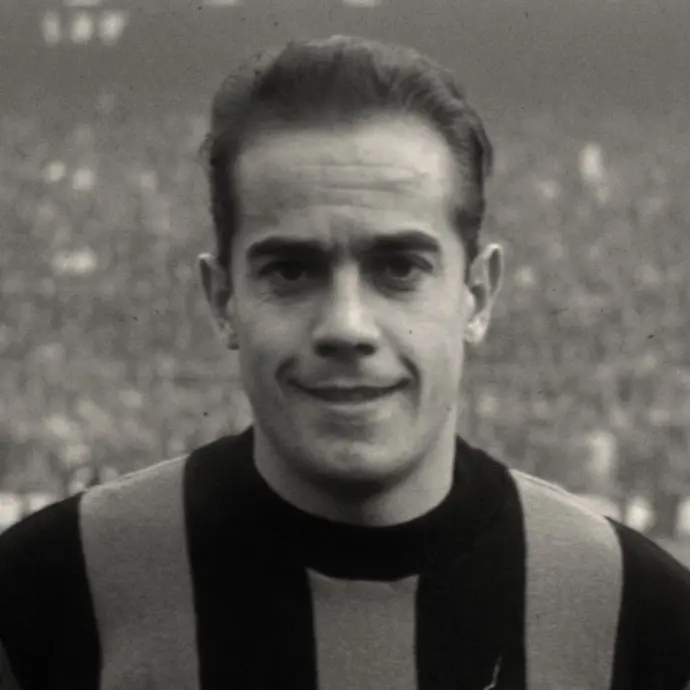
- Age : 27/28 years old
- Club : Inter Milan
- Statistics : 32 games, 7 goals, / assists
- Trophies : Serie A
- Individual Awards : Serie A TOTY
In 1963, Luis Suárez Miramontes was the strategic mastermind behind Inter Milan’s rise to domestic dominance, guiding the club to the Serie A title—their first in nearly a decade. Operating as a deep-lying playmaker, Suárez orchestrated Helenio Herrera’s counter-attacking system with surgical precision, combining long-range passing, spatial awareness, and calm control under pressure. His ability to dictate tempo and transition defense into attack made him the heartbeat of the team. Though Inter did not win the European Cup that season, Suárez’s performances laid the foundation for their continental success the following year. Internationally, he continued to represent Spain, contributing to their qualification campaign for the 1964 European Nations’ Cup. Throughout 1963, Suárez wasn’t just a midfielder—he was a metronome, a tactician, and the architect of one of the most influential teams in football history.
#9 José Altafini
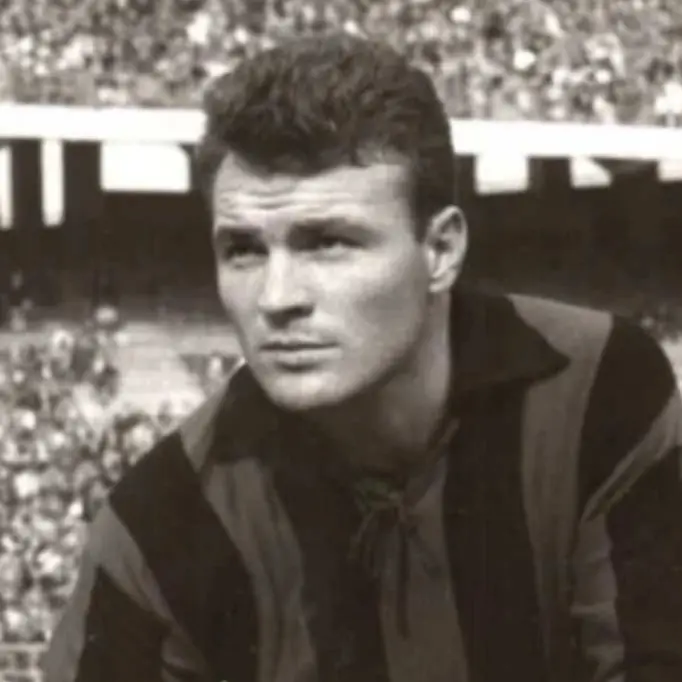
- Age : 24/25 years old
- Club : Milan AC
- Statistics : 39 games, 27 goals, / assists
- Trophies : Champions League, Finalist Intercontinental Cup
- Individual Awards : Champions League TOTY, Champions League Golden Shoe (14 goals)
In 1963, José Altafini delivered one of the most iconic seasons in European football, leading AC Milan to their first-ever European Cup triumph. He scored a record-breaking 14 goals in the competition, including a brace in the final against Benfica at Wembley, overturning a 1–0 deficit and securing a 2–1 victory for the Rossoneri2. Domestically, Altafini continued to impress in Serie A, contributing consistently to Milan’s attack, though the club did not win the league title that year. His performances throughout the calendar year showcased his lethal finishing, intelligent movement, and ability to rise in crucial moments. In the Intercontinental Cup, Milan faced Pelé’s Santos, and Altafini scored in the return leg, though Santos ultimately won the trophy after a playoff match. By the end of 1963, Altafini had firmly established himself as one of Europe’s premier strikers, combining Brazilian flair with Italian precision to etch his name into football history.
#8 Uwe Seeler
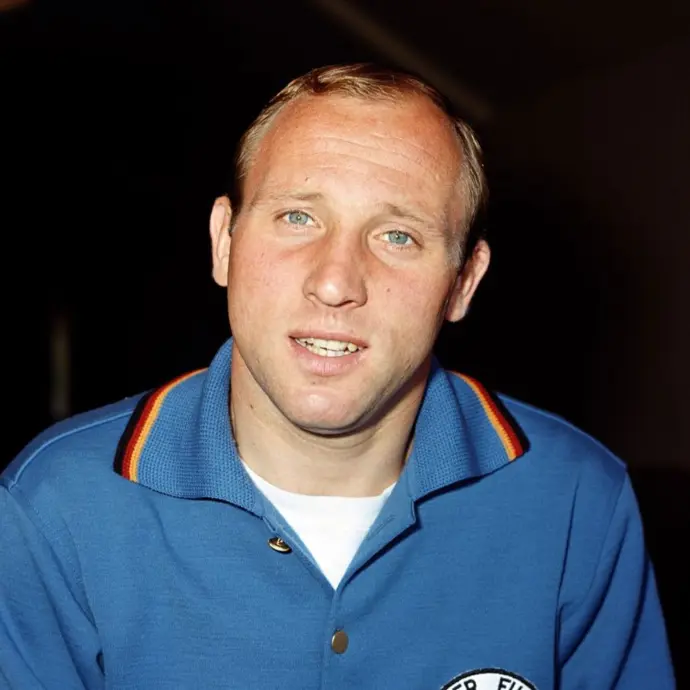
- Age : 26/27 years old
- Club : Hamburg SV
- Statistics : 46 games, 45 goals, 4 assists
- Trophies : German Cup, Oberliga North
- Individual Awards : /
In the 1962–63 season, Uwe Seeler was at his prolific best, scoring 32 goals in 28 matches in the Oberliga Nord, Germany’s top regional league before the Bundesliga’s formation. He added 6 goals in 4 DFB-Pokal matches, including a stunning hat-trick in the final against Borussia Dortmund, securing Hamburger SV’s first national cup title with a 3–0 victory. In the German Championship playoffs, he scored 2 goals in 6 matches, helping HSV reach the final round. Internationally, Seeler featured in friendlies for West Germany, including a high-profile match against Brazil in May 1963. His total for the year stood at 45 goals in 46 competitive matches, a testament to his consistency, aerial dominance, and instinctive finishing. Throughout the year, Seeler wasn’t just a goal scorer—he was the embodiment of loyalty and leadership, anchoring HSV’s attack and shaping the identity of German football on the eve of the Bundesliga era.
#7 Ferenc Puskás
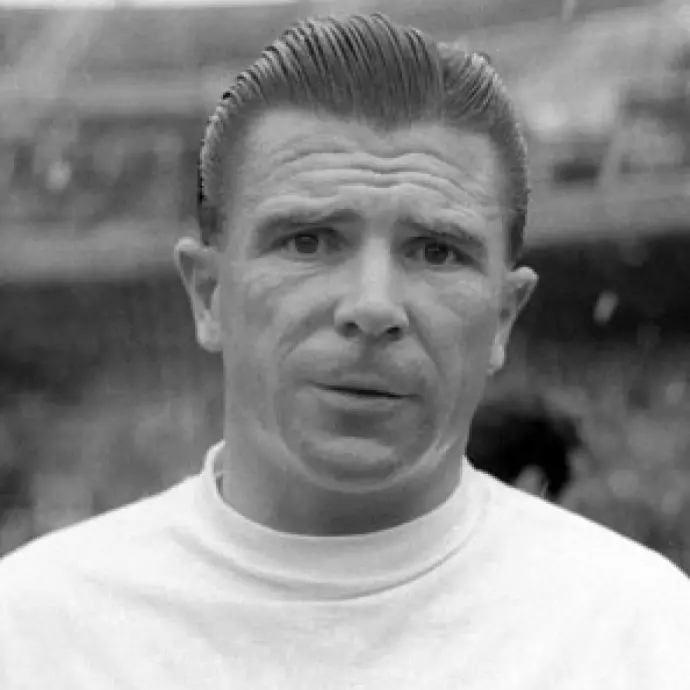
- Age : 35/36 years old
- Club : Real Madrid
- Statistics : 40 games, 40 goals, / assists
- Trophies : Liga
- Individual Awards : Liga TOTY, Liga Golden Shoe (26 goals)
In 1963, Ferenc Puskás defied age and expectation with a season of remarkable scoring and leadership at Real Madrid. At 36, he netted 26 goals in 32 La Liga matches, earning his third Pichichi Trophy as Spain’s top scorer and helping Madrid secure the league title. In the European Cup, he added seven more goals, including a hat-trick against FC Zürich and a crucial strike against Feyenoord, guiding Madrid to the final. Though they lost 2–1 to Benfica at Wembley, Puskás scored the opening goal, reaffirming his reputation as a big-game performer. His left foot remained lethal, his positioning impeccable, and his footballing mind as sharp as ever. Throughout 1963, Puskás wasn’t just maintaining form—he was setting standards for longevity and brilliance in elite football.
#6 Denis Law
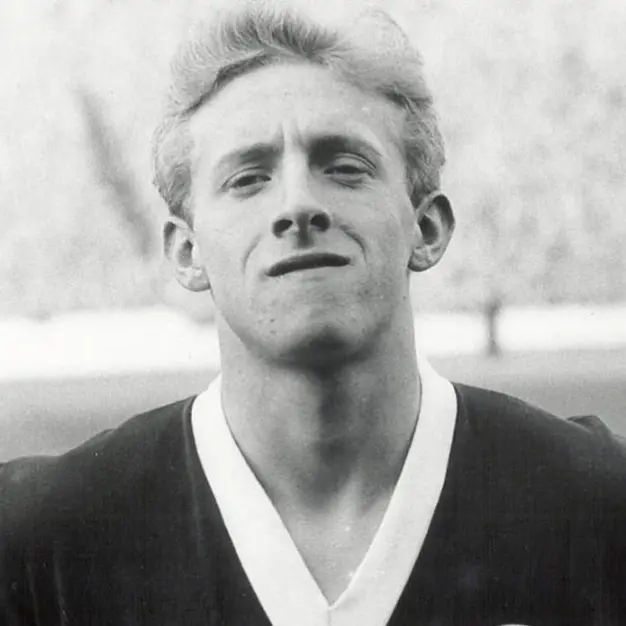
- Age : 22/23 years old
- Club : Manchester United
- Statistics : 47 games, 46 goals, / assists
- Trophies : British Home Championship, English Cup, Finalist Community Shield
- Individual Awards : /
In 1963, Denis Law delivered one of the most explosive seasons in Manchester United’s history, scoring 46 goals in 47 matches. Making him one of the top scorers in England, and he played a pivotal role in United’s FA Cup triumph, scoring the opener in the final against Leicester City. Law’s performances were a blend of aggression, finesse, and instinct, earning him admiration across Europe and a place in the FIFA World XI that faced England in the FA Centenary Match at Wembley. His fearless style, acrobatic finishes, and magnetic charisma made him the heartbeat of United’s attack and a national icon for Scotland. By the end of 1963, Denis Law wasn’t just scoring goals—he was rewriting the standards for what a centre-forward could be.
#5 Jimmy Greaves
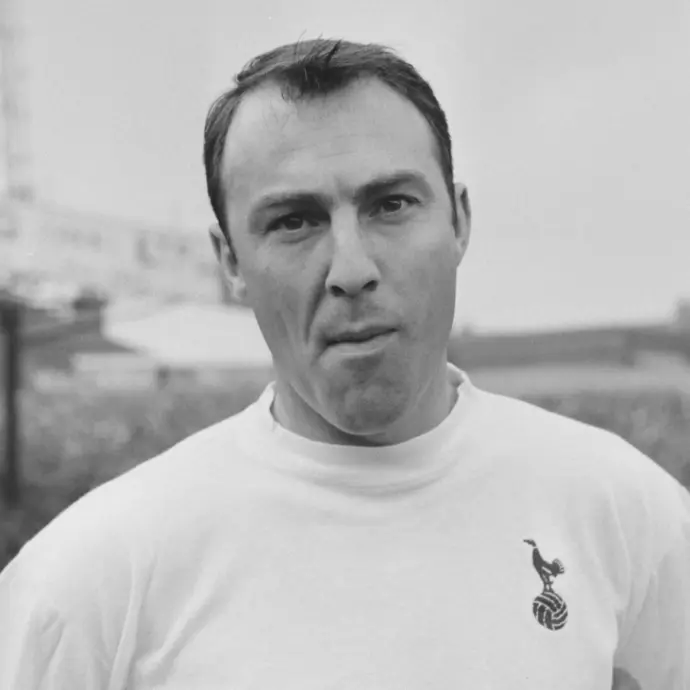
- Age : 22/23 years old
- Club : Tottenham Hotspur
- Statistics : 56 games, 49 goals, / assists
- Trophies : Finalist British Home Championship, Cup Winners Cup
- Individual Awards : Cup Winners Cup TOTY, Cup Winners Cup Golden Shoe (6 goals), Premier League TOTY, Premier League Golden Shoe (37 goals)
In 1963, Jimmy Greaves was at the height of his powers, delivering a season of astonishing consistency and goal-scoring brilliance. Playing for Tottenham Hotspur, he finished as the First Division’s top scorer with 37 goals, a club record that still stands. His instinctive finishing, effortless movement, and ability to “pass” the ball into the net made him the most feared striker in England. That same year, he led Spurs to victory in the European Cup Winners’ Cup, scoring twice in the final against Atlético Madrid in a 5–1 triumph—making Tottenham the first English club to win a European trophy. Internationally, Greaves continued to shine for England, adding to his already prolific tally of goals in friendlies and qualifiers. His performances in 1963 weren’t just prolific—they were poetic, and his reputation as one of the greatest natural goal-scorers in football history was firmly cemented.
#4 Eusébio
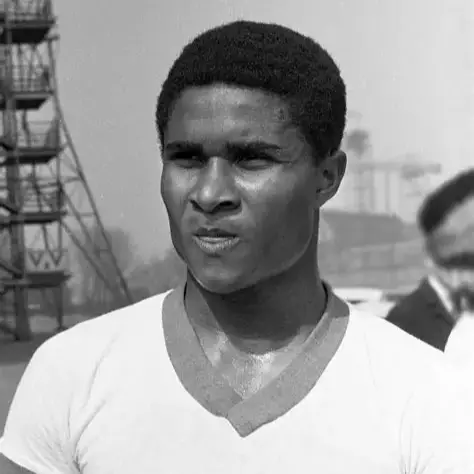
- Age : 21 years old
- Club : Benfica Lisbon
- Statistics : 36 games, 42 goals, / assists
- Trophies : Finalist Champions League, Portuguese League
- Individual Awards : Champions League TOTY, Portuguese League TOTY
In 1963, Eusébio was already a towering figure in European football, blending raw athleticism with refined technique to deliver a season of immense impact. He led Benfica to the final of the European Cup, scoring the opening goal against AC Milan at Wembley, though the Portuguese side ultimately lost 2–1. Domestically, he helped Benfica reclaim the Primeira Divisão title, contributing decisively with his pace, power, and clinical finishing. While exact goal tallies vary across sources, Eusébio was among the league’s top scorers and a constant threat in every competition. Internationally, he continued to represent Portugal, adding to his growing reputation with performances in friendlies and qualifiers. His ability to dominate matches with explosive runs and thunderous strikes made him one of the most feared forwards in the world. By the end of 1963, Eusébio had firmly established himself not just as Benfica’s talisman, but as a global icon whose influence extended far beyond the pitch.
#3 Gianni Rivera
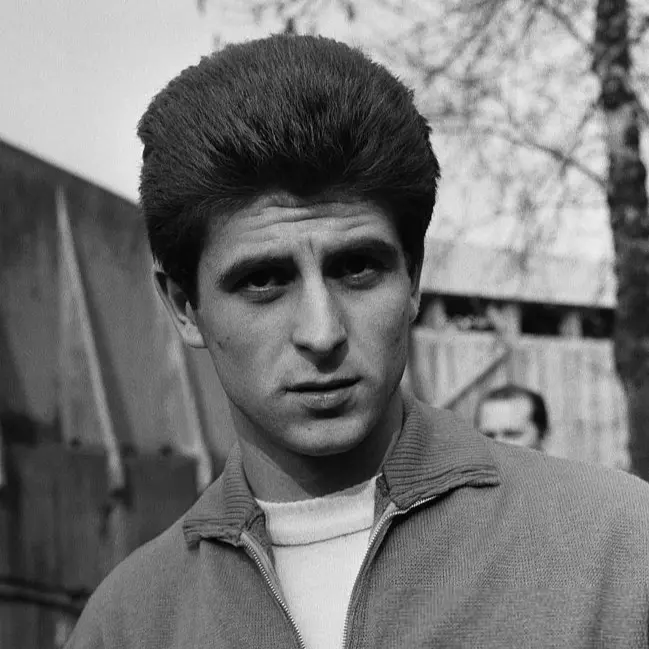
- Age : 19/20 years old
- Club : Milan AC
- Statistics : 60 games, 13 goals, 26 assists
- Trophies : Champions League, Finalist Intercontinental Cup
- Individual Awards : Champions League TOTY
In 1963, Gianni Rivera emerged as Italy’s brightest young star, orchestrating AC Milan’s midfield with elegance and maturity well beyond his 20 years. That season, he played a pivotal role in Milan’s historic triumph in the European Cup, scoring in the quarterfinals against Real Madrid and helping the Rossoneri defeat Benfica 2–1 in the final—Italy’s first victory in the competition. Domestically, Rivera made 27 Serie A appearances, scoring 7 goals, and continued to refine his reputation as a visionary playmaker with impeccable passing and spatial awareness. Internationally, he featured for Italy in several friendlies, solidifying his place in the national setup. Rivera’s performances throughout 1963 earned him widespread acclaim across Europe, and his blend of creativity, composure, and tactical intelligence marked him as the future of Italian football. By year’s end, he was no longer just the “Golden Boy”—he was Milan’s maestro and a symbol of the new generation of elegant, cerebral midfielders.
#2 Lev Yashin
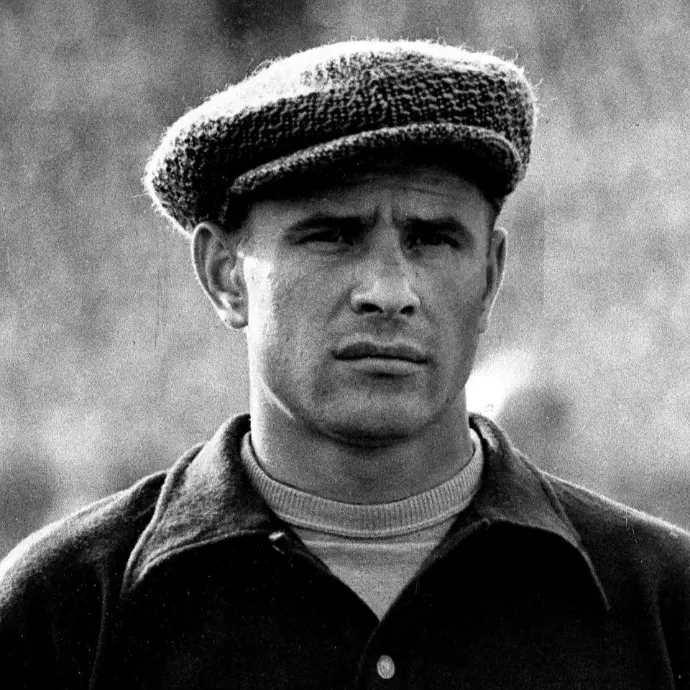
- Age : 33/34 years old
- Club : Dynamo Moscow
- Statistics : 32 games, 10 goals conceded, 24 clean sheets
- Trophies : USSR League
- Individual Awards : USSR League POTY, USSR League TOTY
In 1963, Lev Yashin delivered one of the most commanding seasons ever seen from a goalkeeper, redefining the role with his athleticism, leadership, and tactical innovation. He played 29 matches across all competitions for Dynamo Moscow, conceding just 6 goals in 27 league appearances, and helped the club win the Soviet Top League title. His performances were so dominant that he was named European Goalkeeper of the Year for the ninth time and USSR Goalkeeper of the Year. Internationally, Yashin led the Soviet Union to qualification for the 1964 European Nations’ Cup, eliminating Italy with a 2–0 win and a 1–1 draw. His crowning moment came in October at Wembley, where he starred in the FA Centenary Match, representing a World XI and making spectacular saves against England, including multiple stops against Jimmy Greaves1. That exhibition match, broadcast in color and watched by 100,000 spectators, showcased Yashin’s brilliance to a global audience and solidified his reputation as the most complete and revolutionary goalkeeper of his era.
Winner : Pelé
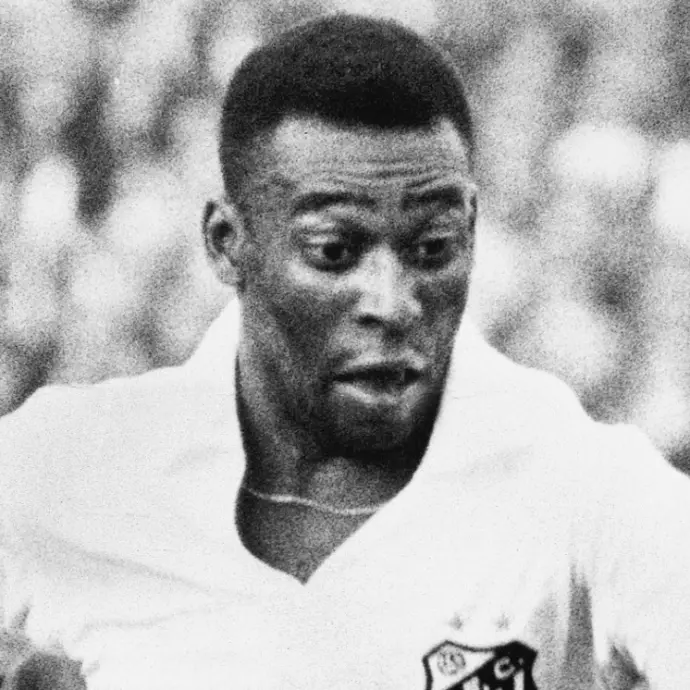
- Age : 22/23 years old
- Club : Santos FC
- Statistics : 44 games, 52 goals, 25 assists
- Trophies : Copa Roca, Copa Libertadores, Intercontinental Cup, Brazilian League, Rio-São Paulo Tournament
- Individual Awards : Copa Roca Golden Shoe (3 goals), São Paulo Championship Golden Shoe (22 goals), Rio-São Paulo Tournament Golden Shoe (14 goals)
In 1963, Pelé showcased his breathtaking talent in one of his most dazzling individual seasons, even though Santos fell short of the Campeonato Paulista title, finishing third behind Palmeiras and São Paulo. He still dominated the scoring charts with 22 league goals and continued his rampage in international competitions. Santos retained their Copa Libertadores title, with Pelé scoring seven times, including crucial goals against Boca Juniors and Botafogo. In the Intercontinental Cup final versus AC Milan, he delivered a masterclass—scoring twice in the second leg and once more in the decisive playoff to secure the trophy. On the international stage, Pelé added to his legend with stunning performances in friendlies, including a hat-trick against France in Colombes. His speed, creativity, and clinical finishing thrilled fans worldwide, reinforcing his status as football’s most exhilarating genius and Santos’s global ambassador.